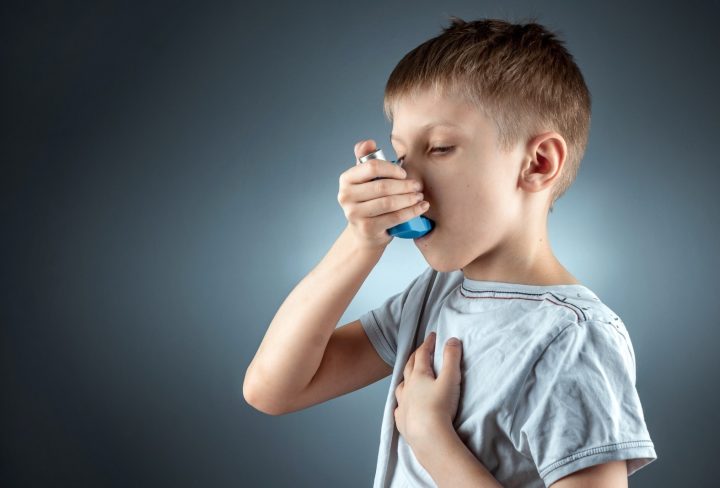Childhood asthma is common in India and affects many families. Understanding what to look for is crucial for parents. Recognizing childhood asthma symptoms early can help in managing the condition effectively and improving the child’s quality of life.
Recognizing Common Asthma Symptoms in Children
There are several signs of childhood asthma parents should notice. Persistent cough, especially at night or after play, can be a sign. Wheezing or a whistling sound while breathing is another common indicator. Sometimes, children may feel short of breath or complain about tightness in their chest.
It’s important to differentiate these from simple colds or allergies. Unlike the common cold, asthma symptoms can persist and worsen over time. Don’t overlook changes in breathing patterns and visit a doctor if in doubt.
Primary symptoms include:
- Coughing that doesn’t go away
- Wheezing during exhalation
Other less common symptoms include fatigue due to disturbed sleep and trouble keeping up with friends during play.
Environmental Factors Impacting Childhood Asthma in India
Urban pollution in Indian cities can be a significant trigger for asthma in children. Dust, smoke, and vehicle emissions hamper breathing and can intensify infants with asthma symptoms. Seasonal changes and pollen also play a role.
Enhancing indoor air quality can reduce symptoms. Regular cleaning can minimize dust mites and mold, while managing pet hair can reduce asthma attacks. It’s also helpful to use air purifiers and keep windows closed when pollution levels are high.
Preventive Measures and Lifestyle Adjustments
Nutrition is key in managing childhood asthma symptoms. Foods rich in vitamin D, such as eggs and fish, are beneficial. Encourage outdoor play in safe areas to strengthen lung health, but avoid strenuous activities during bad air quality days.
Making the home asthma-friendly involves:
- Using dust-proof covers on pillows and mattresses
- Keeping humidity levels low
Navigating the Diagnosis Process
Getting an accurate diagnosis involves several steps. First, consult a healthcare provider who will conduct a physical exam. Be ready to describe the symptoms and their frequency.
Expect tests like lung function tests and possibly an allergy test to understand triggers. Such tests assist in identifying childhood asthma symptoms and distinguishing them from other conditions.
Understanding Medications and Inhaler Use
Inhalers are essential in treating signs and symptoms of childhood asthma. There are different types, each serving a specific function. Knowing the correct way to use inhalers is vital. Practice under a doctor’s guidance for the best results.
Ensure medication is stocked and take them as prescribed to keep symptoms at bay.
Debunking Myths about Childhood Asthma
Many misconceptions abound regarding childhood asthma. It’s crucial to know asthma is manageable and many kids lead active lives. It may seem like childhood asthma go away as children grow, but proper management is crucial.
Accurate knowledge empowers parents to make informed decisions about their child’s health.
Real-Life Success Stories: Learning from Experience
Stories from parents can offer hope and guidance. Many Indian families have successfully managed childhood asthma symptoms by following doctors’ advice and making lifestyle changes.
For instance, some found that adjusting dietary habits and ensuring regular check-ups resulted in significant improvements.
These real-life examples show that with care, children with asthma can thrive.
Essential Questions to Discuss with Healthcare Providers
Prepare important questions for your healthcare provider:
- What are the best treatment options?
- How to manage asthma long-term?
Understanding emergency procedures and knowing what your insurance covers will also offer peace of mind.
Strategies for Handling Asthma Emergencies
Learn to recognize an asthma attack and perform first aid. Keep an emergency kit handy, containing necessary medications and equipment.
Seek urgent medical help if symptoms escalate beyond manageable levels.
Addressing Psychological and Emotional Aspects
Asthma can be emotionally challenging for kids. Support them by encouraging open communication about their feelings and fostering resilience.
Resources like counseling or support groups offer additional help.
Conclusion
Understanding and managing childhood asthma symptoms can make a significant difference. Regular check-ups and being proactive are key to ensuring children lead healthy lives. With the right approach, asthma need not limit a child’s potential.


